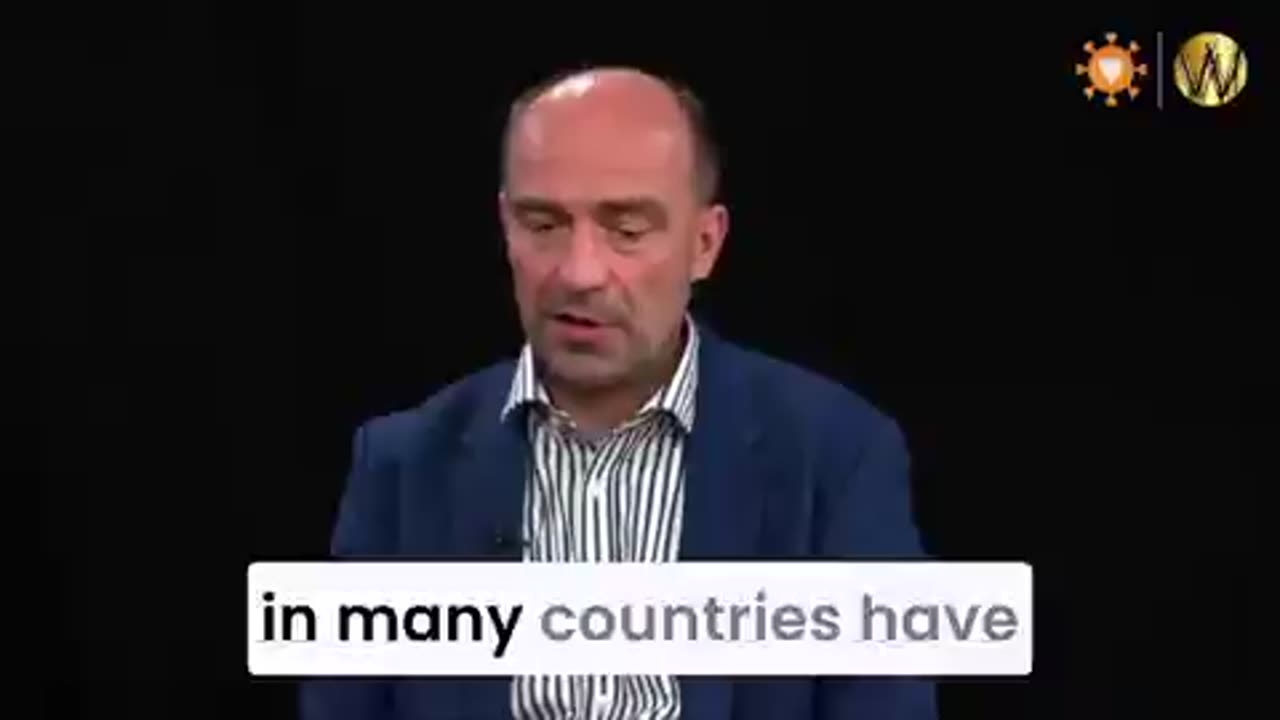Premium Only Content

Richard Werner, formerly on the ECB's "Shadow Council" divulges the full plan for digital IDs
Sense Receptor @SenseReceptor
Richard Werner, formerly on the ECB's "Shadow Council," divulges the full plan for digital IDs:
"The final stage is...it's the size of a grain of rice...[&] you've got the microchip implant under your skin...[&] the legal consequence may be that you're not classified as human"
This clip of Werner (
@scientificecon
), who holds a First Class Honors BSc. in Economics from the London School of Economics and a doctorate in Economics from the University of Oxford, is taken from the International Science Summit (Uncensored), which took place in 2022.
----------------Partial transcription of clip---------------
"But what does central bank digital currency look like? You see, so they never talk about that because people won't actually like the looks of it because it apparently looks, and several central banks, apparently, as I heard from my sources, have already fully developed the final stage of CBDC.
"I mean it comes in stages initially likely through your mobile phone, but it's only an intermediate step. And the final stage is, it's small and it's the size of a grain of rice. Now why is that? ...It's your digital ID. Your wallet. Can be your passport, your key. Now of course what we found with our debit cards or credit cards is they've already now moved to the system RFID chips. RFID technology where you just wave the thing contactless, that is sort of conditioning us in this direction that in the future you'll just wave your hand because you've got the microchip implant under your skin.
"And because in each step there's a rational reason, it's easier just to wave this, isn't it? It's much faster because we always have to wait in the queues as everyone types in their numbers and all that. So just wave it, it's quicker. But the next rationalization will be, well, but you can lose your card, somebody can steal your card and then you're just waving this kind of risky. Well, wouldn't it be nice if you couldn't lose it and nobody could steal it?
"But it's clear that that's sort of, it is almost a step too far for a lot of people because it is a violation of human dignity to actually inject something like that under the skin. So that's where you need some more persuasion.
"And it's interesting that this concept of universal basic income has been around for around a century where everyone should get some kind of citizens payment. But the billionaire elites have so far not liked that. But since 2015 they've all come out, I mean all the big billionaires And World Economic Forum, have come out. Oh, this is a good idea. Universal Basic Income.
"Well, why suddenly now? Because now we have the technology for the microchip implant. And so in 2017, Bill Gates came out and said that Universal Basic Income is a good idea, but it's too early to introduce it. Now, what was still missing? So we had the technology for the microchip implant, but what was missing was the digital ID hadn't been introduced.
"Now this is where this whole Covid agenda had become very useful. And so the sequence has been that first they worked on the technology, they had what they wanted. It was completely made ready already quite a few years ago.
"Then the question became, how can we introduce it? And, the usual game plan would have been to do what central banks in many countries have been working on for many decades, which is to create boom, bust cycles and economic crises. And then in the crisis you say, oh, here's a new idea. That's the solution to the crisis. That's how they've been operating. But in this case, it seems they concluded that, resistance will still be too high. People don't really want to accept this implant because it could also have consequences.
"Apparently, we learned from the World Economic Forum that there is also an approach in law that once you have, what they call transhumanism, once you have electronic implants in the body, which is, you know, to persuade people to do that, they always say this will enhance your functions, you get more abilities, you know, like almost become superhuman. But at the same time, the legal consequence may be that you're not classified as human anymore.
"You know, there's this movement out there talking about humanoid robots. And, you know, many years ago I thought, oh, to create a humanoid robot, that's a lot of work in electronics, in order to create this humanoid robot. Because when you're starting with electronics, there's a lot to build, but it's much faster if you start with a human.
"So once you have certain implants, you may then be classified as a humanoid robot, which seems to be what for these transhumanist, people, you can use them and throw them away whenever you like. That becomes the next question. So once you're not classified as human anymore, but as humanoid robot, will you have human rights? And they've done, World Economic Forum has done surveys asking people, do you think humanoid robots should have human rights? And most people say no. Well, that could be you once you've accepted the microchip implant."
https://x.com/SenseReceptor/status/1973205752560099514
Oct 1, 2025 · 6,062 Views
-
 13:56
13:56
Clintonjaws
14 hours ago $33.57 earnedEntire Room Speechless As Poilievre Snaps & Puts TV Hosts In Their Place
49.5K25 -
 4:23:32
4:23:32
EricJohnPizzaArtist
1 day agoAwesome Sauce PIZZA ART LIVE Ep. #67: HALLOWEEN SPECIAL tribute to “Need to Breathe”
59.7K14 -
 2:26:26
2:26:26
Nerdrotic
10 hours ago $52.95 earned3I/Atlas : A Cosmic Horror or a New Interstellar Understanding? | Forbidden Frontier #122
209K19 -
 54:56
54:56
Sarah Westall
8 hours agoHidden Biblical Writings: Evidence Based Investigation, Worlds First Collection w/ Matthew McWhorter
33.4K26 -
 3:08:48
3:08:48
megimu32
7 hours agoOTS: Great Scott! How Back to the Future Changed Movies Forever
36.7K9 -
 3:40:15
3:40:15
CassaiyanGaming
7 hours ago🟢LIVE - The OUTLAST Trials with JahBless & CatDog
26K5 -
 10:54
10:54
Nate The Lawyer
2 days ago $18.50 earnedNEW Charges & Lawsuit For Fake Doctor Illegal Who Ran Schools For Decades
56.1K48 -
 2:34:44
2:34:44
Joker Effect
6 hours agoSTREAMER NEWS: Adin Ross, LupLupka, SideScrollers, N3on, TrainwrecksTv, Cuffem, WestCol, BottedWTF.
26.2K14 -
 3:04:40
3:04:40
IsaiahLCarter
1 day ago $5.58 earnedWill New York City Choose Communism? || APOSTATE RADIO 032 (with John D. Macari)
32.1K15 -
 2:31:41
2:31:41
Illyes Jr Gaming
9 hours agoRetro Sports Game Night NHL 94
12.3K8